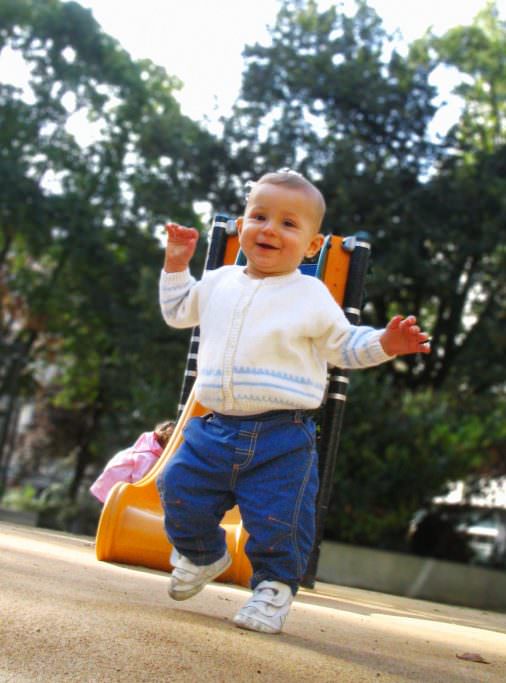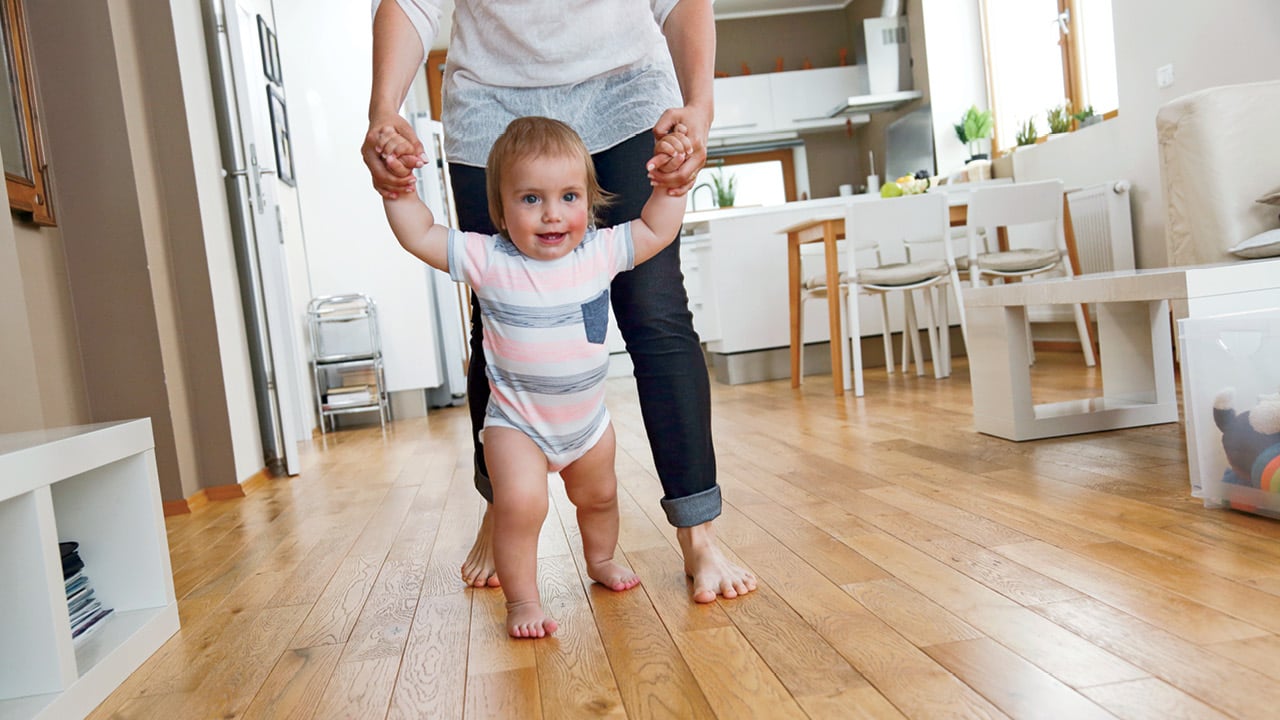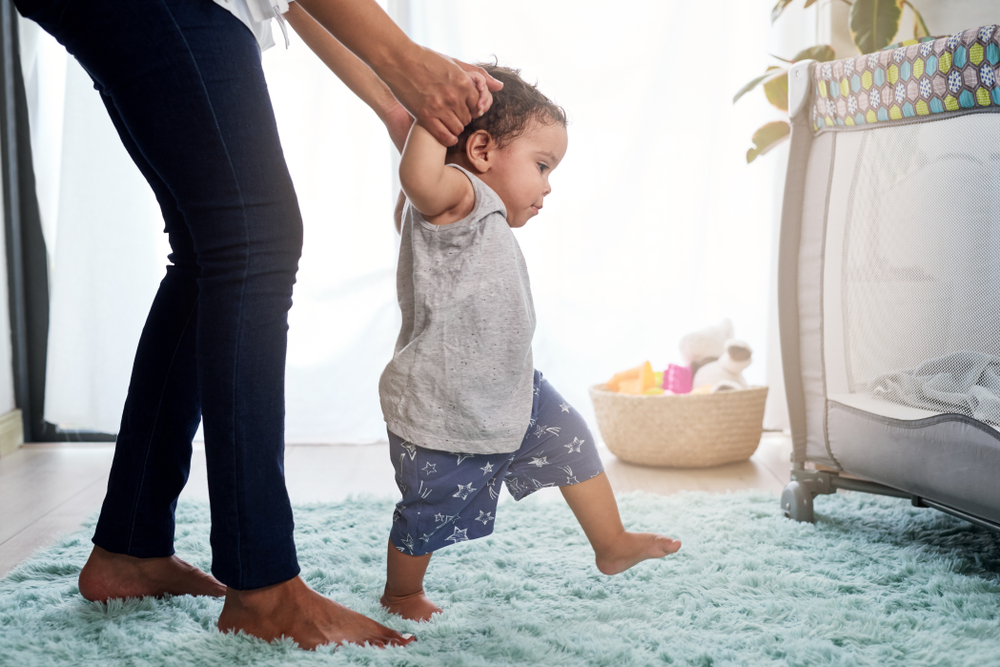As a parent, one of the most exciting milestones to witness is your baby's first steps. But when should your baby start walking? There is no specific answer to this question, as each baby develops at their own pace. However, there are some facts and milestones to keep in mind as your baby progresses towards walking independently. Here are some tips, ideas, and how-to guide to help your baby take the first steps towards independence.
What Are The Milestones Towards Walking?
1. Rolling Over:
Before a baby can learn to walk, they need to develop some core strength and stability, which is why rolling over on their own is a sign of progress. This typically happens between 4-6 months old.

2. Crawling:
Once they can roll over, babies generally start crawling. Crawling helps babies develop arm and leg strength, which they need to walk. This stage usually happens between 6-10 months old.
3. Pulling Up:
As babies get stronger and more mobile, they'll start pulling up on objects like furniture and walls. This helps them develop leg strength and balance, and often happens around the 9-month mark.

4. Cruising:
Babies who are cruising are able to walk while holding onto furniture or holding your hands. This is an important step towards walking independently and usually happens around the 11-12 month mark.

How To Help Your Baby Start Walking?
1. Give Them Freedom:
Allow your baby the freedom to move around and explore on their own. Give them plenty of time to crawl and roll around, as this helps them develop their strength and coordination.
2. Help Them Stand:
Encourage your baby to pull up on furniture or other sturdy objects. Give them plenty of opportunities to practice standing, even if it's just for a few seconds at a time. This will help their leg muscles get stronger.
3. Use Walking Assistants:
Many parents use walking assistants like push toys or walkers to help their babies practice standing and walking. However, it's important to note that these tools don't actually help babies learn to walk on their own, and can sometimes be hazardous. Use them with caution.
4. Walk With Them:
Hold your baby's hands and walk with them. This will help them develop a sense of balance and coordination, and will give them the confidence they need to start walking on their own.
Precautions To Take When Helping Your Baby Learn To Walk:
1. Supervision:
Always supervise your baby when they're practicing standing and walking, as they can easily fall over and hurt themselves.
2. Safety Measures:
Make sure your home is baby-proofed to minimize the risks of accidents. Cover sharp corners and block off stairs.
3. Avoid Hard Shoes:
Babies' feet are still developing, so it's best to avoid hard-soled shoes that can hinder their ability to learn how to use their feet properly. Stick with soft, flexible shoes or let them go barefoot.
4. Watch For Signs Of Fatigue:
Walking is hard work for babies, and they can easily become tired or frustrated. Watch for signs of fatigue and give them plenty of breaks.
Remember, every baby develops at their own pace, so don't worry if your baby isn't walking at the same time as other babies their age. With patience and encouragement, your little one will be on their feet and exploring the world before you know it.
Read more articles about When A Baby Should Start Walking